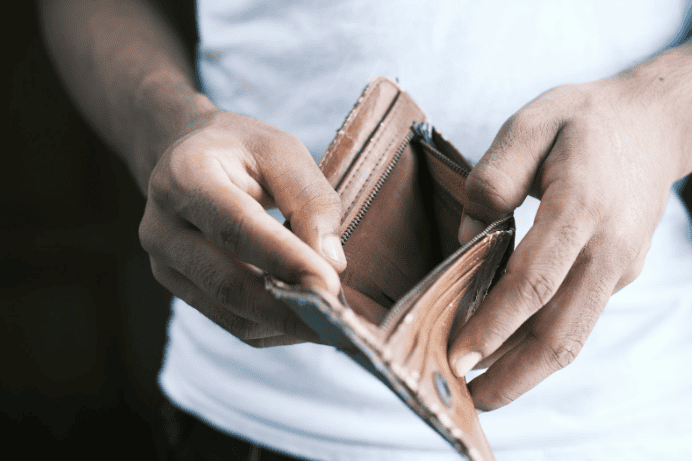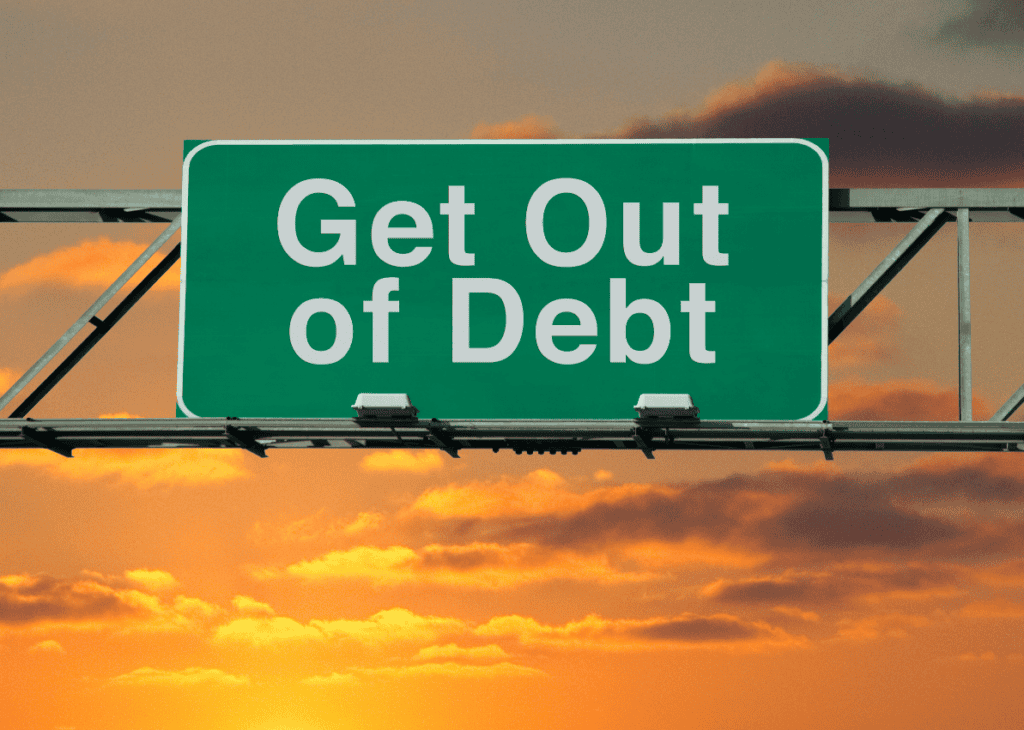Navigating personal finances can be an arduous journey in today's fast-paced environment. Getting out of debt is especially daunting and can take a toll on various aspects of life. For instance, 88% of Canadians believe that their finances are negatively affecting their overall well-being.
Table of Contents
However, mastering your finances and emerging from debt are both achievable and empowering goals. This guide offers effective strategies that will enable you to take charge of your financial situation and lead toward a debt-free future.

Understanding Your Debt
Learning how to get out of debt means mastering your finances, which involves understanding all your debt. Start getting out of debt by listing out all your credit cards, loans, and any other outstanding balances.
Keep track of not just their total amounts but also interest rates and monthly minimum payments for each debt. Analyze any high-interest-rate debts that should be prioritized for repayment to cut costs further while hastening your path toward debt freedom.

Consider each debt's minimum monthly payments required of you and allocate extra funds toward those with higher interest rates to hasten their payoff strategy.
A comprehensive view will allow for easy identification and management of financial obligations while creating an effective debt repayment strategy tailored to meet personal financial goals and priorities.
Creating a Budget
A key part of getting out of debt is setting an appropriate budget. Start by documenting all your monthly income and expenses. Categorize these into essentials, such as rent, mortgage payments, utilities, and groceries, vs. non-essential categories like dining out and entertainment.
Then, identify areas in which spending could be cut back so more can be allocated towards debt repayment. Creating such an effective document will allow you to prioritize payments while tracking progress toward financial independence.
Prioritizing Debt Repayment
Once your budget has been created, start prioritizing debt repayment according to factors like interest rates and outstanding balances. Explore using either the debt snowball or debt avalanche methods – each one requires you to gradually pay off one debt at a time with minimum payments going to other debts at the same time.
With snowball repayment, you start by clearing off smaller balances first while making minimum payments toward others simultaneously for maximum motivational effect.
The debt avalanche method involves clearing debts with higher interest rates first in order to save on interest over time. When choosing either strategy it is crucial that it fits your financial goals and any repayment plans must be strictly observed.
Building an Emergency Fund
As part of your debt repayment efforts, it's vital not to underestimate the importance of creating an emergency fund. Unexpected expenses like car repairs or medical emergencies could derail financial progress if savings weren't set aside to cover them.
For that reason, when beginning this journey, it would be prudent to build three to six months' essential living expense savings into an easily accessible savings account as an emergency reserve that offers quick access in times of trouble.
Emergency funds provide invaluable financial security during uncertain times, providing peace of mind and stability during uncertain circumstances.
Relying on an emergency fund allows you to avoid using credit cards or loans as an immediate fix to unexpected costs that would lead to additional debt accumulation without jeopardizing your repayment plan in any way.
In turn, this approach helps support debt freedom by mitigating risks related to unanticipated expenses while simultaneously building resilience against future shocks.
Building and Maintaining Good Credit
While debt relief should remain top of mind, building and preserving good credit should also be important. Your credit score has an enormous influence over future opportunities such as loans, renting an apartment and possibly landing employment.
To develop solid credit, be sure to make all debt payments on time and in full each month, keep the credit utilization ratio low by not maxing out cards, and regularly review your report for errors or discrepancies that might negatively affect it.
By prioritizing building and maintaining good credit alongside debt repayment efforts, you'll ensure a more stable financial future for yourself and your loved ones.
Getting Out of Debt and Staying Debt Free
Mastering your finances and emerging from debt requires dedication, persistence, and careful strategic planning.
By understanding your debt load and creating a budget to address it, prioritizing debt repayment, setting aside an emergency fund, and building and maintaining a good credit score, you can take charge of your future and enjoy a debt-free lifestyle.
Remember: small steps toward financial freedom today may yield big dividends down the line. Start the journey towards freedom now and discover its bliss.



